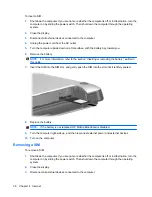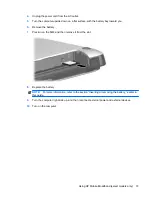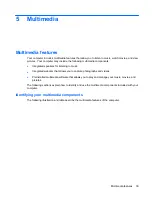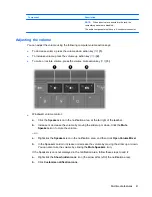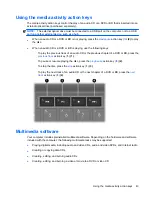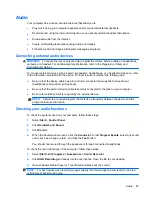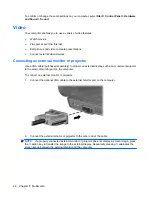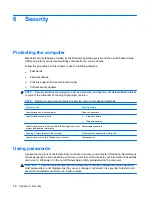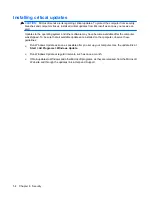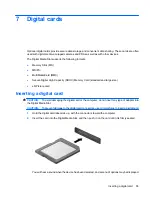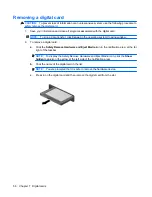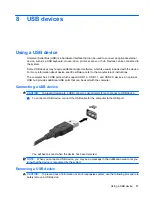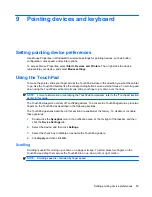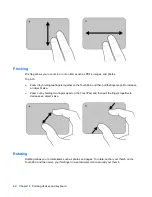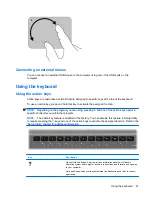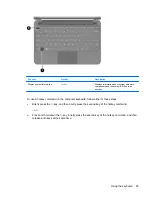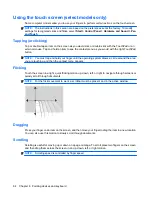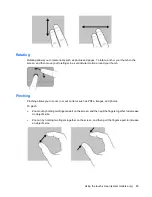
Administrator password
Your administrator password protects the configuration settings and system identification information in
Setup Utility. After this password is set, you must enter it each time you access Setup Utility.
Your administrator password is not interchangeable with an administrator password set in Windows,
nor is it displayed as it is set, entered, changed, or deleted. Be sure that you record your password and
store it in a safe place.
Managing an administrator password
To set, change, or delete this password, follow these steps:
1.
Open Setup Utility by turning on or restarting the computer, and then pressing
f10
while the “F10
= BIOS Setup Options” message is displayed in the lower-left corner of the screen.
2.
Use the arrow keys to select
Security
>
Set Administrator Password
, and then press
enter
.
●
To set an administrator password, type your password in the
Enter New Password
and
Confirm New Password
fields, and then press
enter
.
●
To change an administrator password, type your current password in the
Enter Current
Password
field, type a new password in the
Enter New Password
and
Confirm New
Password
fields, and then press
enter
.
●
To delete an administrator password, type your current password in the
Enter Password
field,
and then press
enter
4 times.
3.
To save your changes and exit Setup Utility, use the arrow keys to select
Exit
>
Exit Saving
Changes
.
Your changes go into effect when the computer restarts.
Entering an administrator password
At the
Enter Password
prompt, type your administrator password, and then press
enter
. After 3
unsuccessful attempts to enter the administrator password, you must restart the computer and try again.
Power-on password
Your power-on password prevents unauthorized use of the computer. After this password is set, it must
be entered each time you turn on or restart the computer, or exit Hibernation. A power-on password is
not displayed as it is set, entered, changed, or deleted.
50
Chapter 6 Security

